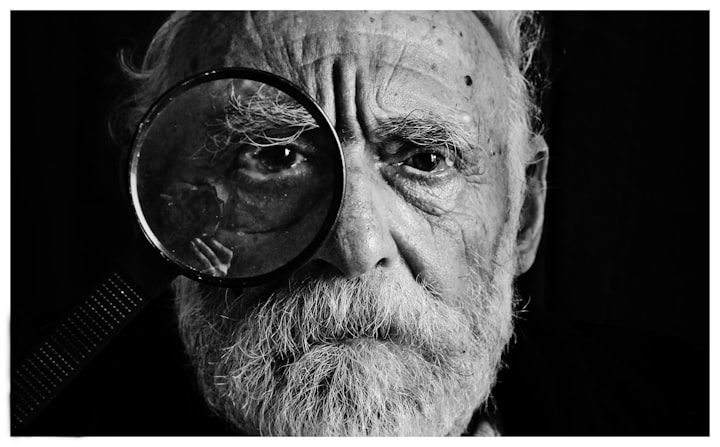
The book, A Woman in Berlin, is the diary of the German woman known as Anonymous. In her book, Anonymous recounts the final weeks of the Third Reich and later Russian occupation of Berlin. Writing from April until June 1945, she gives insight into being on the receiving end of the invasion. Here we will explore how did Anonymous change or confirm her opinion of Russians from the war to the end of the occupation of Berlin? In this, we will look at her relationship with Petka, Lieutenant Anatol, and Sergeant Andrei. How do these three confirm or change Anonymous’s views on Russians during the occupation? How does her attraction belie their “barbarism?” The war and occupation gave Anonymous an upfront and raw exposure to the Russians. And in this, they began to fill the power vacuum formerly occupied by the now decrepit and broken men of Germany.
The book, A Woman in Berlin, covers the late period of both the Second World War, and the final days of the Third Reich. In the book, Anonymous and the other town folk face starvation brought on by the Third Reich's inability to supply the city. Besides starvation, they face near-constant bombardment by American planes and Russian artillery. (1) What little food they have is often half rotten or snatched up as soon as it arrives. (2) In this, people become so desperate for food that they are willing to risk life and limb for what little nutrients are available. (3) The Berliners of the spring of 1945 had the war front brought to them.
Anonymous’s first interaction with the Russians is when a group of three breaks into her group's basement. Upon entering the room, one of the Russians asks how old the youngest girl is. (4) But, the group is unwilling to give up the young girl. In the melee, the three men take Anonymous into the staircase and proceed to rape her. As soon as they finish, she runs to find the nearest source of Russian authority. She runs up to two men grooming a horse, to tell them what happened. They laugh her off as they continue to groom the horse. But, she stays talking to the groomers to ward off her attacker. (5) This was when Anonymous realized she would have to find a wolf to protect her from the rest of the pack. (6)
The key to her seeking protection would be her Russian language skills, skills she picked up during her travels through European Russia. This is a fact that she had been reluctant to share with the other cave dwellers. (7) This first close encounter with the Russians gives her a better idea of what they look like. She is now able to make out their features. To her, they are sturdy with broad foreheads, with closely cropped hair. (8) The first men seem to have a child-like quality, as they are teaching each other to ride bikes. (9) She finds her fear of them dissipating, as they appear to be normal men. And in this, she believes she can control them through her feminine wiles. (10)
The first Russian that Anonymous seeks protection in is Petka. In Petka, she finds a strong, brutish man that has the promise of being physically capable of deterring any other attacker. (11) This is the main appeal of the man at first. Besides her previous assault by him, she decides she may be able to manipulate him. (12) But she soon realizes that Petka’s strength alone will not prevent the soldiers from passing her around the enemy camp. In many ways, Petka reinforces many of Anonymous's stereotypes of Russians. She sees him as a backward barbarian without self-control. Thus, she proceeds to seek a wolf that is not just strong but also carries the rank needed to ward off any other pursuers. (13)
Anonymous begins to decipher the invaders' rank. She finds this difficult, as she finds herself in a sea of green uniforms. The only thing she can piece together is “that the officers wear stars on their caps, and generally have overcoats.” (14) This contradicts Anonymous’s Prussian upbringing. As she is accustomed to the strict German martial order of officers having a clear distinction from the enlisted. She is also shocked to find that the Russian officers do not come from a background of privilege or higher education. Nor do the Russian officers ascribe to any Western notions of honor-based chivalry or gallantry. (15) She attributes this to the Russians' lack of Western European medieval culture. She does admit that her Russian is not sufficient to distinguish who may or may not be educated. Thus, to her, they are all peasants. This includes the man who will become her protector, for the time being, Lieutenant Anatol.
Lieutenant Anatol is a Ukrainian soldier that has risen through the ranks of the Red Army. Anonymous meets him on May 1, 1945, as he is coming out of an apartment across the street. (16) She describes him as tall, dark-haired, and well-fed. The last is the most important to Anonymous’s current circumstance, as it demonstrates he has access to goods that she is in desperate need of. Over the days that follow, Anonymous becomes concerned that a confrontation will arise between Petka and Anatol. Especially when Anatol shows up late to their meeting. But she feels a sense of relief when he shows up, “filling the space with his masculine self.” (17) It is with Anatol that Anonymous begins to reconsider her views on how civilized the Russians are. Yet, at this point, it is unclear whether this softening stems from a true changing of her opinion. Or if she is drunk with infatuation, mixed with a bit of desperation. This would continue with her next Russian contact.
The next most influential Russian contact of Anonymous’s is Sergeant Andrei. In this man, Anonymous finds the first person she can have an educated conversation with. It does not hurt that he is easy on the eyes, with his blue eyes and narrow forehead, he is quiet and intelligent as well. (18) In this he appears to fit the Nazi model of an ideal Aryan more than many Germans. In Andrei, she also finds her first true believer in Marxism. She finds it odd that he does not blame Hitler for the war, but capitalism, as it produces the Hitlers of the world. She also finds relief in Andrei’s unwillingness to treat her as a piece of flesh. He goes so far as to state that he disapproves of such things. (19) He seems to be the stereotypical intellectual that is shy amongst women. He declares that he sees women as comrades and appears embarrassed around Anonymous at times. (20) It is in Andrei that we see the clearest change in Anonymous’s views of Russian civility. Andrei was the Russian that caused the greatest change in Anonymous’s opinion, as he showed that he was cultured in the classical Western European sense.
Throughout their time together, there is a softening of Anonymous’s views towards the Russians. Whether this softening comes from a place of seeing them as children acting like men. Or as possible intellectual and cultural equals to the Germans is unknown. While Petka reinforced many of her negative stereotypes of Russians. Anonymous appears later to soften up to the man, even pity him. Whether this was through actual understanding and care for the man is unclear. As she imagines him remembering her later in life. In her fantasy, he is either looking back on her with infatuation or derision. (21)
If Petka is the still untamed beast in Anonymous’s tale, then Anatol serves as the middle ground. He lacks the civility of Andrei, yet has risen to the heights that Anonymous would expect of someone with the same education. And it is this that forces Anonymous to reconsider the value of the old order., Now that the Third Reich has fallen, she questions if the Russians have it right. In this, she is made to recognize the Russians as a civilized people. A people that are not simply conquered but are conquerors. Thus, while Petka did all he could to confirm her beliefs, the actions and personalities of Anatol and Andrei changed her views on Russians in the 1940s.
The greatest strength that A Woman in Berlin has as a primary source is that it was written as events unfolded. In this, it gives the reader a look into what it was like to live in 1945 Berlin. The difficulties and triumphs. While it provides a good snapshot of a certain place and time, it fails as a reliable source. This failure comes from parts where Anonymous contradicts herself. Such as when in one breath it is supposed to be too dark to see far, and in the next she sees in detail. Additionally, Anonymous’s tendency toward hyperbolic language and grandeur degrade her credibility. The tendency of Anonymous to exaggerate her and her comrade's experience. She does this by "awarding" military grades and awards that are beyond what they would be if they were in the military. She appears obsessed with appealing to the reader’s emotions. And thus, one can see how some doubted the validity of her book in the first few decades of post-war Germany.
Thank you for reading my work. If you enjoyed this story, there’s more below. Please hit the like and subscribe button, you can follow me on Twitter @AtomicHistorian, and if you want to help me create more content, please consider leaving a tip or a pledged subscriber.
More from this author:
Citations:
1. Anonymous, A Woman in Berlin, trans. Philip Boehm (New York, NY: Picador, 2000), xv
2. Ibid., 34
3. Ibid., 3
4. Ibid., 49
5. Ibid., 49,50
6. Ibid., 64
7. Ibid., 45
8. Ibid., 46
9. Ibid., 47,48
10. Ibid., 48
11. Ibid., 66
12. Ibid., 57
13. Ibid., 64
14. Ibid., 64,65
15. Ibid., 70
16. Ibid., 65
17. Ibid., 67
18. Ibid., 74
19. Ibid., 77
20. Ibid., 77
21. Ibid., 230
About the Creator
Reader insights
Outstanding
Excellent work. Looking forward to reading more!
Top insights
Easy to read and follow
Well-structured & engaging content
Excellent storytelling
Original narrative & well developed characters
Expert insights and opinions
Arguments were carefully researched and presented
Eye opening
Niche topic & fresh perspectives
Heartfelt and relatable
The story invoked strong personal emotions
On-point and relevant
Writing reflected the title & theme






Comments (2)
That was very well written and extremely interesting! I thought you did a great job of summarizing while still moving the article along. Well done :)
Absolutely fascinating, Sir!